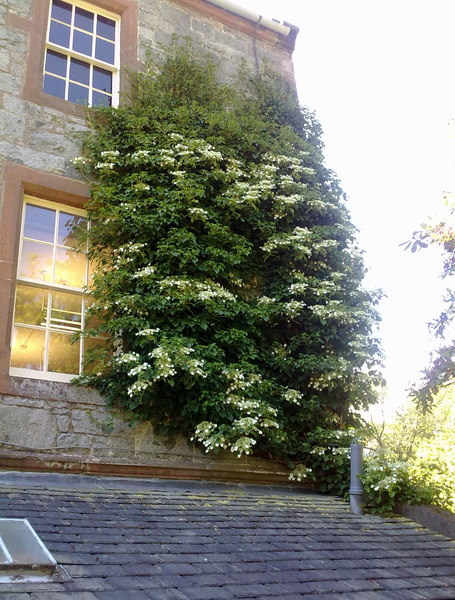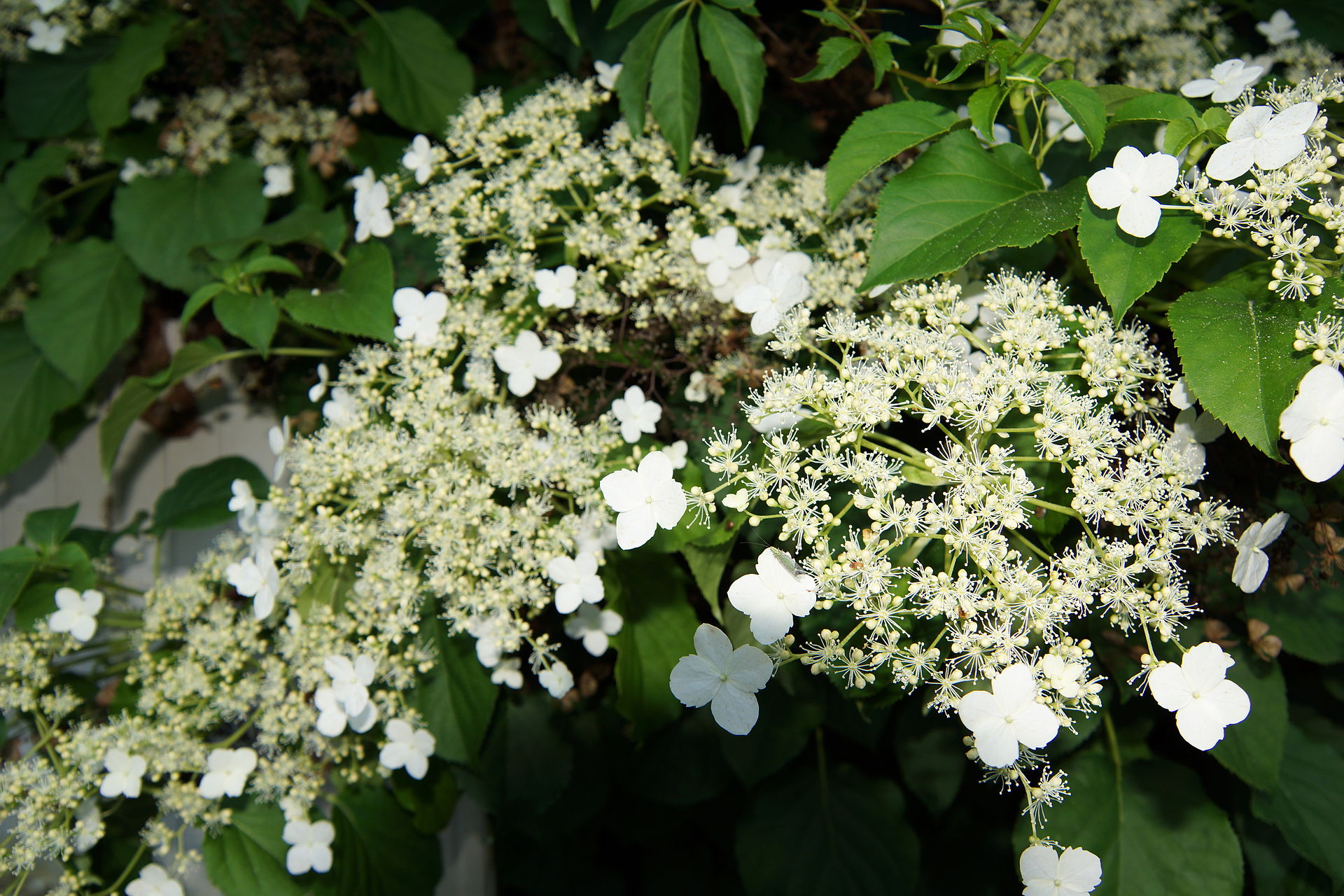Although not used as commonly as its shrubbier cousins, the climbing hydrangea (Hydrangea anomala spp. petiolaris) is definitely one of the more impressive members of the Hydrangea family. Stretching to over 75 feet in some cases, climbing hydrangeas are deciduous clinging vines that can scale vertical surfaces via twining (wrapping themselves around a structure) and aerial roots that cling to small irregularities in the surface. This allows climbing hydrangeas to ascend building walls without the aid of trellises or arbors, although both are certainly welcome. Do remember though when selecting the support structure for these aerial beauties, it is necessary to take into consideration their considerable weight. Covered in dense and attractive, heart-shaped foliage with fragrant 6-8 inch clusters of white flowers that bloom in late spring to midsummer and a tendency to grow in a three-dimensional rather than flat manner, their total weight is not insignificant.
 Photo by Anne Robertson CC BY SA 2.0
Photo by Anne Robertson CC BY SA 2.0
However, it is this same three-dimensionality of movement across a surface that is actually one of its most interesting qualities. Creating intriguing shapes and shadows against what might otherwise be a sheer wall, climbing hydrangeas add a greater sense of depth and excitement to these blank spaces, and are a more exciting substitute for commonly used climbing vines like English Ivy.
 Photo by Dalibri CC BY SA 3.0
Photo by Dalibri CC BY SA 3.0
Climbing Hydrangea (Hydrangea anomala spp. petiolaris)is a fast-growing deciduous vine native to the woodlands of eastern Siberia, Japan, China, and South Korea, grows best in zones 4-7, reaches a length of 30-60 feet with a spread of 5-6 feet, prefers moist well-drained soils that are slightly acidic, flourishes best in full sun to partial shade, blooms white in early to midsummer, is slow to establish but quite vigorous afterwards, works well as a groundcover, low-mounded shrub, trellis, arbor, or climbing wall specimen, and is most well-known for it three-dimensional climbing habit produced via twining and aerial rootlets.
Anyway, if you have a bare wall, arbor, or trellis that needs softening and shape, then a climbing hydrangea might be the perfect plant for you! Call 703-679-8550 today to set up a consultation.

Leave a Reply